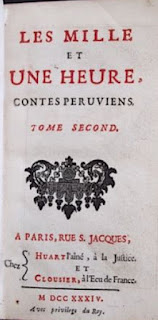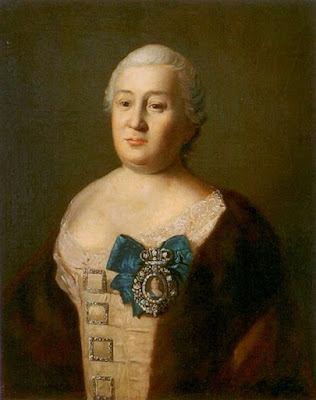Welcome to "Zolotaja ručka: Damskaja literatura XVIII-XIX vv."
This blog is part of an ongoing project to engage interested readers, and especially students, with texts written by Russian women from the early 18th century to World War I. It includes commentaries, translations, illustrations, and suggestions for further research.
The genesis of this project was a course on Russian women's writing that I taught at the University of Genoa several years ago that quickly became, for want of available translations, a course in reading historical literary texts. My three excellent students (Giulia Bisogni, Noemi Liberi, and Martina Morabito) rose to the challenge with enthusiasm and perseverance, encouraging me to rethink an idea that I had been mulling over with Carolina Ardini, a former student, namely that of publishing translations online.
What better way to make up for the glaring absence of women's texts (evident not only in the lack of Italian translations, but also in Russian literary history in general) than to translate them? And what better way to get our translations to the reader than publish them online? It would save us the trouble of arguing with publishing companies about the (dubious) commercial appeal of Russian women's writing from previous centuries. We could reach more readers. We could publish over time and as often or as rarely as we like, as much or as little, and so on. Moreover, translations published online can continue to be improved: they can be works in progress, open to criticism and commentary, and easily adjusted. Still more important, however, is the motivation that online publishing can offer to students by involving them directly in the process of literary translation, as well as in the discovery and recovery of historical and forgotten texts -- and improving their Russian while doing so.
We -- the original Editorial Commissariat formed by Carolina Ardini, Giulia Bisogni, Martina Morabito, and myself -- first planned to set up a website that would feature translations of women's writing, but our ideas gradually changed shape. We also wanted a forum that would offer, in addition to translations, commentary about the history of women's writing in general, as well as information and bibliography on specific writers, and portraits of them. To this end, we thoroughly discussed every aspect, potential problem, and possible solution of such an endeavor, traveling down many a dead-end path. The blog format, despite its numerous shortcomings, has come to represent for us both a highly desirable paring down of a potentially unwieldy project and a return to the same work-in-progress fluidity that inspired it.
The latest step in this project's evolution has been a decision to transform the blog into a teaching tool, aimed especially at students and teachers of Russian women's writing. My historical commentaries will thus attempt to raise questions, rather than answer them -- and suggestions for "further reading" are not intended to be comprehensive, but meant as "a few good places to start", though bibliographic input is always welcome. Some of the questions raised here will be flagged with the word "student" in fuchsia: these are specific suggestions for student research topics and it is my fond hope that some will become the subject of papers and theses. This blog looks forward to learning from the results of such research.
The latest step in this project's evolution has been a decision to transform the blog into a teaching tool, aimed especially at students and teachers of Russian women's writing. My historical commentaries will thus attempt to raise questions, rather than answer them -- and suggestions for "further reading" are not intended to be comprehensive, but meant as "a few good places to start", though bibliographic input is always welcome. Some of the questions raised here will be flagged with the word "student" in fuchsia: these are specific suggestions for student research topics and it is my fond hope that some will become the subject of papers and theses. This blog looks forward to learning from the results of such research.
This blog will be composed of various threads, the two main ones being The Golicyn History (which follows a roughly chronological order and will be my own personal project), and The Translations (which do not/will not). The Translations that we have "in stock" at the moment are in Italian and were written largely by students working with me in Genoa or with colleagues at other Italian universities. We would enthusiastically welcome the opportunity to add English translations to our repertoire. The transliteration used in both the English and Italian portions of this blog follows the scholarly Italian system (й = j, ч = č, ш = š, щ = šč, ж = ž, х = ch).
Sara Dickinson
Associate Professor of Russian Literature and Culture
Università degli Studi di Genova
December 2015



So interesting! I look forward to some good reading! RCD
ReplyDelete